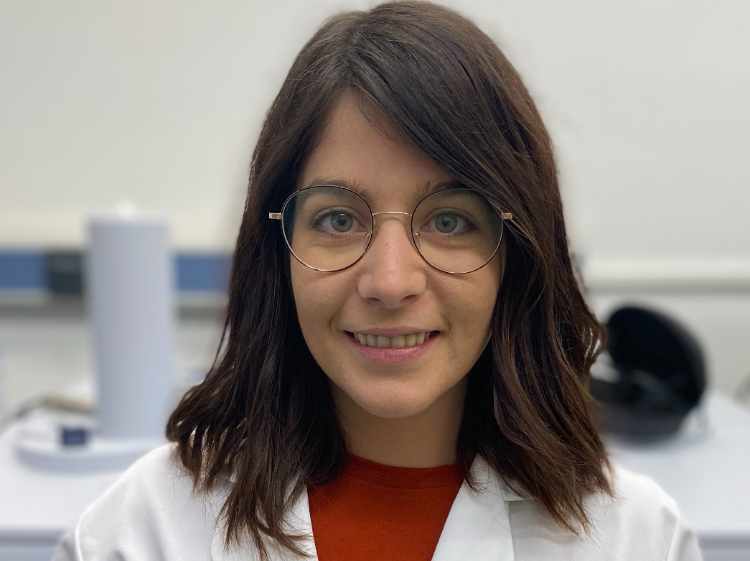
The researcher Isabel Abánades Lázaro has been awarded a "la Caixa" Foundation Junior Leader Fellowship that will allow her to advance in her postdoctoral stage at the Institute of Molecular Science (ICMol) of the University of Valencia, where she is already carrying out her research work as part of the Crystal Engineering Lab (CEL) group.
The grant will go towards strengthening a line of research aimed at the synthesis of new MOF structures with defects of interest in the environmental sector. MOFs area three-dimensional, crystalline and porous chemical compounds, whose exceptional characteristics make them useful for multiple applications in areas as diverse as gas storage and separation, ion exchange and catalysis, among others.
Defects, in materials chemistry, are imperfections that are often coveted because they give the material interesting properties. "There are defects that make MOFs more reactive, allow them to generate energy more quickly, or make them more porous and, therefore, capable of storing more water or gases," explains the scientist now selected by the Junior Leader programme of the "la Caixa" Foundation.
"It is a matter of understanding the assembly process of the materials during synthesis in order to then control the type of materials we develop and the type of defect they contain," says Abánades. "One of our objectives is to synthesise them à la carte and prepare them for application in projects related to the environment, such as photocatalysis for the decontamination of cities or the generation of hydrogen from water to obtain clean and renewable energy, to give some examples," he concludes.
Graduated in Chemical Sciences at the University of Alcalà (2014), Abánades obtained her PhD at the University of Glasgow and, the following year, she obtained a grant from the Marie Sklodowska-Curie programme, funded by the European Research Council (ERC). She is currently a Juan de la Cierva postdoctoral researcher for the Spanish Ministry of Science and Innovation at ICMol, a centre accredited with the María de Maeztu Unit of Excellence seal.
The award of the "la Caixa" Junior Leader grant is another significant step in Abánades' scientific career, given the highly competitive nature of this grant programme, which in its Retaining modality selects 15 people to carry out a research project at any university or centre in Spain or Portugal. In the 2023 call for applications, the programme received 292 applications. Forty-six percent were women, with an average age of 35.
Abánades is one of the two candidates selected in the field of chemistry for these grants - the highest from a private entity in Spain - reserved for STEM disciplines (life sciences, experimental sciences, physics, chemistry, engineering, technology and mathematics). The "la Caixa" grants extend over 3 years and have a maximum endowment of 305,000 euros for the entire period.
In addition to competitive salaries, the programme offers transversal training to promote an independent scientific career as an option for a professional future and to foster innovation and leadership, two qualities that Abánades already demonstrated when she was selected to participate in the Lindau Nobel Laureate Meeting in 2022, the world forum for young leaders of the future to which 600 participants from over 100 countries are invited for their talent and social commitment.
"One of the great advantages of the "la Caixa" programme is that it gives us the independence to be able to incorporate people to supervise and, along the way, to serve as an inspiration to new generations of people who want to do research in terms of equality", says the research.

